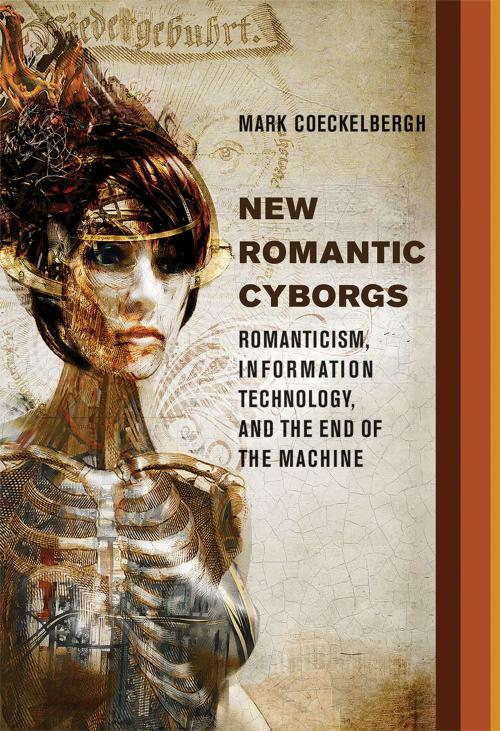New Romantic Cyborgs
Romanticism, Information Technology, and the End of the Machine
Nonfiction, Science & Nature, Science, Other Sciences, Philosophy & Social Aspects, Technology, Engineering| Author: | Mark Coeckelbergh | ISBN: | 9780262343091 |
| Publisher: | The MIT Press | Publication: | February 24, 2017 |
| Imprint: | The MIT Press | Language: | English |
| Author: | Mark Coeckelbergh |
| ISBN: | 9780262343091 |
| Publisher: | The MIT Press |
| Publication: | February 24, 2017 |
| Imprint: | The MIT Press |
| Language: | English |
An account of the complex relationship between technology and romanticism that links nineteenth-century monsters, automata, and mesmerism with twenty-first-century technology's magic devices and romantic cyborgs.
Romanticism and technology are widely assumed to be opposed to each other. Romanticism—understood as a reaction against rationalism and objectivity—is perhaps the last thing users and developers of information and communication technology (ICT) think about when they engage with computer programs and electronic devices. And yet, as Mark Coeckelbergh argues in this book, this way of thinking about technology is itself shaped by romanticism and obscures a better and deeper understanding of our relationship to technology. Coeckelbergh describes the complex relationship between technology and romanticism that links nineteenth-century monsters, automata, and mesmerism with twenty-first-century technology's magic devices and romantic cyborgs.
Coeckelbergh argues that current uses of ICT can be interpreted as attempting a marriage of Enlightenment rationalism and romanticism. He describes the “romantic dialectic,” when this new kind of material romanticism, particularly in the form of the cyborg as romantic figure, seems to turn into its opposite. He shows that both material romanticism and the objections to it are still part of modern thinking, and part of the romantic dialectic. Reflecting on what he calls “the end of the machine,” Coeckelbergh argues that to achieve a more profound critique of contemporary technologies and culture, we need to explore not only different ways of thinking but also different technologies—and that to accomplish the former we require the latter.
An account of the complex relationship between technology and romanticism that links nineteenth-century monsters, automata, and mesmerism with twenty-first-century technology's magic devices and romantic cyborgs.
Romanticism and technology are widely assumed to be opposed to each other. Romanticism—understood as a reaction against rationalism and objectivity—is perhaps the last thing users and developers of information and communication technology (ICT) think about when they engage with computer programs and electronic devices. And yet, as Mark Coeckelbergh argues in this book, this way of thinking about technology is itself shaped by romanticism and obscures a better and deeper understanding of our relationship to technology. Coeckelbergh describes the complex relationship between technology and romanticism that links nineteenth-century monsters, automata, and mesmerism with twenty-first-century technology's magic devices and romantic cyborgs.
Coeckelbergh argues that current uses of ICT can be interpreted as attempting a marriage of Enlightenment rationalism and romanticism. He describes the “romantic dialectic,” when this new kind of material romanticism, particularly in the form of the cyborg as romantic figure, seems to turn into its opposite. He shows that both material romanticism and the objections to it are still part of modern thinking, and part of the romantic dialectic. Reflecting on what he calls “the end of the machine,” Coeckelbergh argues that to achieve a more profound critique of contemporary technologies and culture, we need to explore not only different ways of thinking but also different technologies—and that to accomplish the former we require the latter.















![Cover of the book Taking [A]part by Mark Coeckelbergh](https://www.kuoky.com/images/2015/february/300x300/9780262328104-b4WW_300x.jpg)